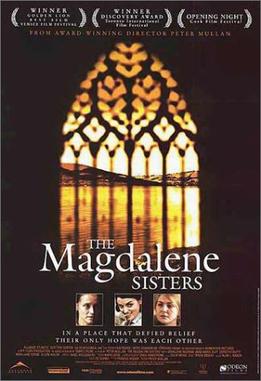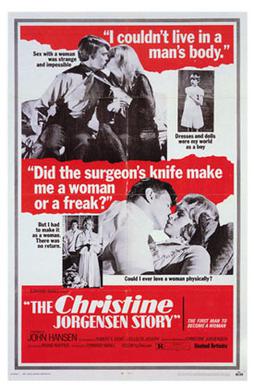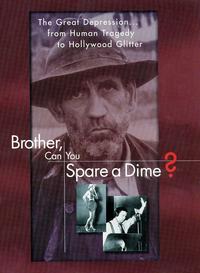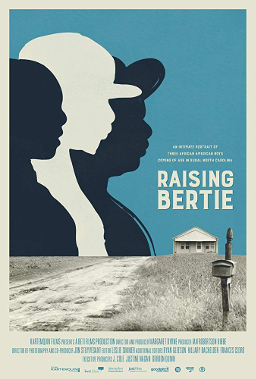
The Mary Tyler Moore Show is an American television sitcom created by James L. Brooks and Allan Burns and starring actress Mary Tyler Moore. The show originally aired on CBS from September 19, 1970, to March 19, 1977. Moore portrayed Mary Richards, an unmarried, independent woman focused on her career as associate producer of a news show at the fictional local station WJM in Minneapolis. Ed Asner co-starred as Mary's boss Lou Grant, alongside Gavin MacLeod, Ted Knight, Georgia Engel, Betty White, Valerie Harper as friend and neighbor Rhoda Morgenstern, and Cloris Leachman as friend and landlady Phyllis Lindstrom.

Lincoln Theodore Monroe Andrew Perry, better known by the stage name Stepin Fetchit, was an American vaudevillian, comedian, and film actor of Jamaican and Bahamian descent, considered to be the first black actor to have a successful film career. His highest profile was during the 1930s in films and on stage, when his persona of Stepin Fetchit was billed as the "Laziest Man in the World".

Calvary Cemetery is a Roman Catholic cemetery that the Archdiocese of Los Angeles runs in the community of East Los Angeles, California. It is also called "New Calvary Cemetery" because it succeeded the original Calvary Cemetery, over which Cathedral High School was built.

Margery Louise Allingham was an English novelist from the "Golden Age of Detective Fiction", and considered one of its four "Queens of Crime", alongside Agatha Christie, Dorothy L. Sayers and Ngaio Marsh.

Hoop Dreams is a 1994 American documentary film directed by Steve James, and produced by Frederick Marx, James, and Peter Gilbert, with Kartemquin Films. It follows the story of two African-American high school students, William Gates and Arthur Agee, in Chicago and their dream of becoming professional basketball players.

The Magdalene Sisters is a 2002 drama film written and directed by Peter Mullan, about three teenage girls who were sent to Magdalene asylums, homes for women who were labelled as "fallen" by their families or society. The homes were maintained by individual religious orders, usually by the Catholic Church.

Father Dowling Mysteries, known as Father Dowling Investigates in the United Kingdom, is an American mystery television series first aired from January 20, 1989, to May 2, 1991. The series was preceded by the 1987 television movie Fatal Confession. NBC aired the first season, while ABC broadcast two additional seasons.

"Quinn the Eskimo (The Mighty Quinn)" is a folk-rock song written and first recorded by Bob Dylan in 1967 during the Basement Tapes sessions. The song's first release was in January 1968 as "Mighty Quinn" in a version by the British band Manfred Mann, which became a great success. It has been recorded by a number of performers, often under the "Mighty Quinn" title.

The Trouble with Angels is a 1966 American comedy film about the adventures of two girls in an all-girls Catholic school run by nuns. The film was the final theatrical feature to be directed by Ida Lupino and stars Hayley Mills, Rosalind Russell, and June Harding.

The Christine Jorgensen Story is a 1970 American drama film and a fictionalized biographical film about trans woman Christine Jorgensen. While the overall premise of the film is accurate, many of the details are fictionalized for the continuity of the film. It was directed by Irving Rapper and based on Christine Jorgensen's autobiography.

Stand Up and Cheer! is a 1934 American Pre-Code musical film directed by Hamilton MacFadden. The screenplay by Lew Brown and Ralph Spence was based upon a story idea by Will Rogers and Philip Klein. The film is about efforts undertaken during the Great Depression to boost the morale of the country. It is essentially a vehicle for a string of vaudeville acts and a few musical numbers. The film is best known for providing the first big breakthrough role for legendary child actress Shirley Temple. A little known bit player before the film, by the end of the year, she appeared in 10 movies, including 4 starring roles in major feature-length films.
Kartemquin Films is a four-time Oscar-nominated 501(c)3 non-profit production company located in Chicago, Illinois, that produces a wide range of documentary films. It is the documentary filmmaking home of acclaimed producers such as Gordon Quinn, Steve James, Peter Gilbert, Maria Finitzo, Joanna Rudnick, Bing Liu, Aaron Wickenden, and Ashley O’Shay (Unapologetic).

Brother, Can You Spare a Dime? is a 1975 documentary film directed by Philippe Mora, consisting largely of newsreel footage and contemporary film clips to portray the era of the Great Depression.
Gordon Quinn is artistic director and founding member of Kartemquin Films and a 2007 recipient of the MacArthur Award for Creative and Effective Institutions. Gordon Quinn has been making documentaries for over 45 years and has produced or directed over 30 films. His recent directing credits include Prisoner of Her Past and A Good Man. His producing credits include the films Hoop Dreams; In the Family;Vietnam, Long Time Coming; Golub: Late Works Are the Catastrophes; 5 Girls; Refrigerator Mothers; and Stevie. Most recently, Gordon executive produced Mapping Stem Cell Research: Terra Incognita and The New Americans, for which he directed the Palestinian segment. Currently, he is executive producing several new films for Kartemquin.
Maynard Eziashi is a Nigerian-English actor. In 1991, he won the Silver Bear for Best Actor at the 41st Berlin International Film Festival for his starring role in Mister Johnson (1990).
"The Lonesome Road" is a 1927 song with music by Nathaniel Shilkret and lyrics by Gene Austin, alternately titled "Lonesome Road", "Look Down that Lonesome Road" and "Lonesome Road Blues." It was written in the style of an African American folk song.

Fraternité Notre-Dame is a traditionalist Catholic order of priests and nuns that is not in union with the Pope.

Judy Hoffman is an American filmmaker and arts activist based in Chicago. She graduated from Northwestern University with a MFA and currently holds a faculty position at the University of Chicago. Hoffman has played a major role in the development of Kartemquin Films, a documentary filmmaking company founded in Chicago in 1966. Hoffman has worked with extensively with Kwakwaka’wakw, a First Nation in British Columbia, to produce films. Hoffman has brought activism to her films, and continues to show different facets of the city of Chicago.
Peter Kuttner is a Chicago filmmaker, activist, and cameraman. He is known for his early socially-conscious documentary films that touch on topics such as opposition to United States involvement in the Vietnam War, gentrification of Chicago, racism, and social class. He produced many of these with the film collective Kartemquin Films, of which he was an original member. He is best known for his work on the film The End of the Nightstick (1993) with Cindi Moran and Eric Scholl, which documented police brutality in Chicago and torture allegations against commander Jon Burge. Kuttner has worked extensively in activism and community service, and was a founding member of activist group Rising Up Angry. Kuttner has worked with many collaborators including Kartemquin Collective founder Gordon Quinn, and filmmakers Haskell Wexler and Robert Kramer. He is also known for camera work on a number of major motion pictures including Man of Steel and Source Code.

Raising Bertie is a 2016 American documentary film directed by Margaret Byrne and produced by Ian Robertson Kibbe, Margaret Byrne, and Jon Stuyvesant. It was distributed by Kartemquin Films and aired in shortened form on the 30th season of PBS's documentary series POV on August 28, 2017.















